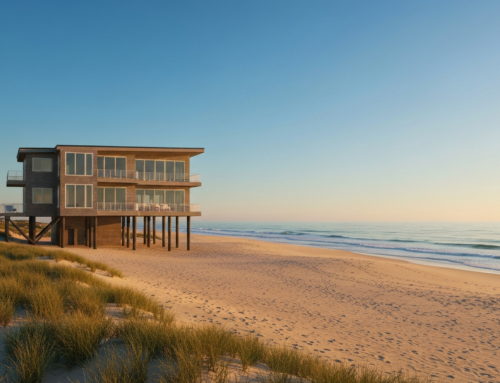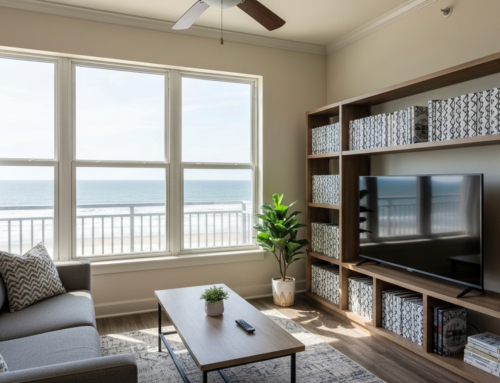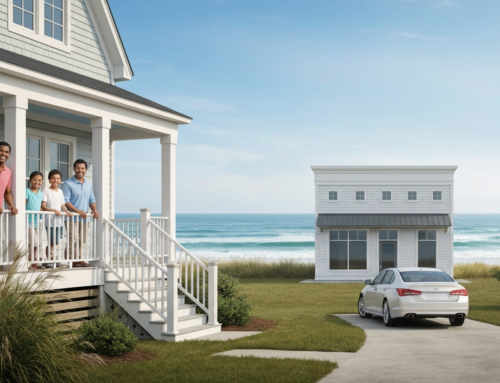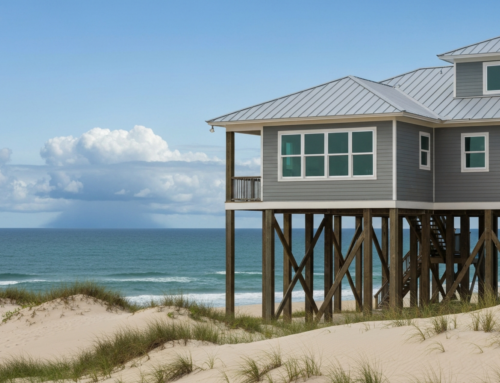Flood insurance is a crucial safeguard for homeowners and businesses, especially in areas prone to floods, such as Myrtle Beach, Charleston, or Wilmington. While most people are familiar with federal flood insurance programs like the National Flood Insurance Program (NFIP), private flood insurance has been growing in popularity as an alternative. However, there are many misconceptions surrounding private flood insurance that prevent homeowners and businesses from taking advantage of it.
This article will address the top five misconceptions about offering private flood insurance. By debunking these myths, you’ll gain a better understanding of how private flood insurance can provide flexible, comprehensive, and affordable coverage for your property.
1. Misconception: Private Flood Insurance is More Expensive Than NFIP Coverage
One of the most common misconceptions is that private flood insurance is significantly more expensive than NFIP coverage. While it’s true that private insurers are not government-subsidized, many people are surprised to learn that private flood insurance can often be more affordable than the NFIP, especially for properties in low- or moderate-risk zones.
Private insurers have the ability to customize their policies based on individual property risk factors, which can result in lower premiums for homeowners who do not face high flood risks. Additionally, private flood insurance companies may offer more flexible deductibles and policy limits, allowing you to tailor your coverage to fit your budget.
For example, homeowners in Concord who live in a low-risk flood zone may find that private flood insurance offers better rates and more flexible coverage options compared to the NFIP.
2. Misconception: Private Flood Insurance is Not Accepted by Mortgage Lenders
Another common myth is that mortgage lenders only accept flood insurance policies from the NFIP, and therefore, private flood insurance isn’t an option for those who are required to carry flood insurance. However, this is no longer the case. Thanks to legislative changes like the Biggert-Waters Flood Insurance Reform Act, mortgage lenders can accept private flood insurance policies, provided that the coverage meets or exceeds the NFIP’s standards.
Private flood insurance policies are held to the same level of scrutiny as NFIP policies, meaning they are a valid and compliant option for homeowners with federally backed mortgages. Whether you own a home in Greenville or Charlotte, private flood insurance is an accepted form of coverage that can meet your lender’s requirements.
If your lender requests flood insurance, don’t hesitate to explore private flood insurance options, which may offer better coverage at a more affordable price.
3. Misconception: Private Flood Insurance Policies Are Less Comprehensive
Many people assume that private flood insurance policies offer less coverage than the NFIP. This misconception leads some homeowners to believe that private flood insurance won’t adequately protect their property. In reality, private flood insurance policies are often more flexible and offer broader coverage than NFIP policies.
For example, private flood insurance typically covers additional living expenses (ALE), which can help cover the cost of temporary housing if your home is uninhabitable due to flood damage. This coverage is not included in the standard NFIP policy. Private insurers also tend to provide higher limits for structures and personal belongings, allowing you to insure your home and contents for their full value.
For homeowners in John’s Island, where coastal flooding is common, private flood insurance may provide a more comprehensive solution, offering higher policy limits and broader coverage options than the NFIP.
4. Misconception: Private Flood Insurance is Only for High-Risk Properties
Some people believe that private flood insurance is only necessary for properties in high-risk flood zones, such as those located along rivers or coastlines. While it’s true that homes in high-risk flood zones benefit from flood insurance, this misconception overlooks the reality that flooding can happen anywhere. In fact, according to FEMA, more than 20% of flood claims come from properties in low- or moderate-risk areas.
Private flood insurance can offer peace of mind to homeowners in places like Wilmington, Greenville, or Concord, where unexpected flooding due to heavy rain, flash floods, or poor drainage systems can still cause significant damage. Whether your home is located in a high-risk flood zone or not, private flood insurance is worth considering.
5. Misconception: It’s Difficult to Switch from NFIP to Private Flood Insurance
Some homeowners assume that if they already have an NFIP policy, it will be difficult to switch to a private flood insurance provider. This misconception stems from concerns about lapses in coverage or dealing with complicated processes to cancel an NFIP policy. However, switching from the NFIP to private flood insurance is typically a straightforward process.
When you switch to a private insurer, they will work with you to ensure a smooth transition, and there is typically no penalty for leaving the NFIP. In many cases, private flood insurance companies can offer immediate coverage, making the switch hassle-free.
For homeowners in Charleston who are looking to save money or secure better coverage, switching from NFIP to private flood insurance may be a beneficial option. If you’re considering making the switch, be sure to review your options with a reputable insurance provider like Beach Insurance LLC.
Private flood insurance is often misunderstood, leading many homeowners to overlook this valuable option. By debunking the misconceptions that private flood insurance is more expensive, less comprehensive, or difficult to obtain, you can make a more informed decision about your flood coverage. Whether you live in Myrtle Beach, Charlotte, or John’s Island, private flood insurance offers a flexible and potentially more affordable alternative to the NFIP.
At Beach Insurance LLC, we are committed to helping you protect your home from the devastating financial impact of flooding. Contact us at 843-718-0075 to discuss your flood insurance options and find the coverage that best suits your needs.







Leave A Comment